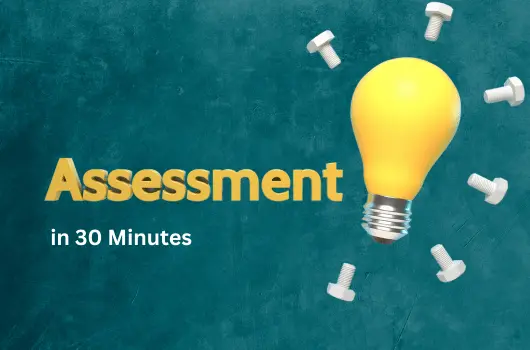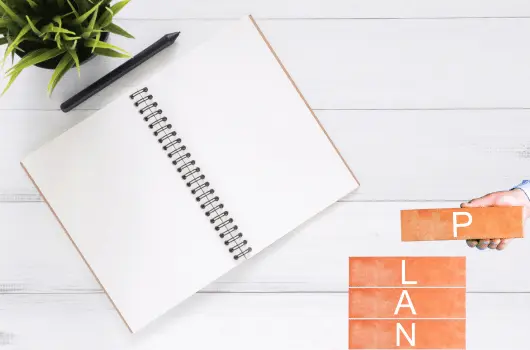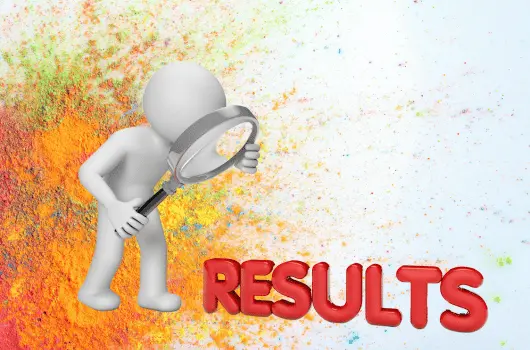
How to Assess a Student’s Language Level in 30 Minutes
Before you start setting goals with your student, developing a learning plan, and planning your lessons you need to define your student’s language proficiency.
Assessing knowledge is crucial both for you as a tutor and for your student. Many students suppose they have one level or another. But most of the time it is rarely that straight.
Normally, you would assess your student in a trial lesson. The result will let you adjust your lessons to meet their needs, develop the learning plan, and offer appropriate challenges.
During the trial lesson, you need to do a lot like hook your student to keep learning with you, discuss details, assess knowledge, etc. Therefore, being able to assess your student’s level of language within 30 minutes is a great skill.
Understanding Language Proficiency

Language proficiency is typically divided into several levels. It ranges from beginner to advanced levels and includes listening, speaking, reading, and writing skills.
One of the most recognized frameworks for language proficiency is the Common European Framework of Reference for Languages (CEFR). It categorizes proficiency into six levels from A1 to C2.
When you assess a student’s knowledge level, you are doing two things. Identify their overall proficiency and understand their strengths and weaknesses across different skills.
For instance, your student may be excellent at reading but struggle with speaking. Or they may understand spoken language well but have difficulty with writing.
The 30-Minute Assessment Plan

When assessing your student's language proficiency in 30 minutes you need to use a multi-faceted approach. It should touch all those four critical areas of language learning. Let’s consider each of them.
Initial conversation (5 minutes)
Many students are very stressed before and during the trial lesson. You are someone new to them, they are starting a new challenge in their life.
What you want is to put them at ease from the very beginning. Therefore, for an initial conversation, it is better to start with something casual.
Ask them about their day, interests, or reasons for learning the language, etc. You can take any topic. The most important is that this part of the assessment should feel informal. Make your student relax and speak naturally.
I usually take something related to the student that would help me build an interesting course for them. Since you still want to take maximum information from the conversation to help you build engaging lessons. Why not combine both?
What will you need to observe when assessing speaking:
First of all, see what is their fluency and flow. How naturally do they speak and if there are any long pauses or frequent hesitations?
Look at their vocabulary. If they use a wide range of words and can find the right words for everyday topics.
Pay attention to the grammar they use. If they construct sentences and use grammatical structures correctly.
Also, can you understand them easily? Or do some major pronunciation issues impede understanding?
And vice versa, how well do they understand your questions and respond appropriately?
The conversation should feel organic. However, you as a tutor should be already taking notes on these areas.
Listening Comprehension Test (5 minutes)
After the initial conversation, shift the focus to a listening comprehension exercise. Here you can talk about yourself for a bit. Otherwise, you can play an audio or video clip or read a short passage aloud.
If you choose the latter, make sure it matches the presumed level of the student based on the initial conversation. It could be a news report, a short story, or a dialogue between two people.
Normally before the trial lesson, I ask the student about their level, so I more or less know what to prepare.
After the clip, ask a few questions to check their understanding. Ask simple questions that refer to facts like "What did the speaker say about the weather?". And finish with more inferential ones "Why do you think the speaker was upset?".
What will you need to observe when assessing listening:
First of all, understand if your student can recall specific details from the clip. If not, it does not mean the listening skill is bad. Sometimes students simply fly away in their thoughts.
In this case, understand if your student caught the overall message or main idea.
Also, is he able to make logical inferences based on the information?
Listening is often one of the most challenging skills for language learners. Therefore, this section can give you significant insights into their proficiency.
Reading Comprehension Test (5 minutes)
I like to provide my students with a short passage to read. As listening, the passage should be appropriate to their assumed level.
After reading I usually ask the meaning of several random words from the passage. And we discuss the passage. Another idea could be to give multiple-choice, true/false, or open-ended questions.
What will you need to observe when assessing reading:
Can your student quickly identify the main idea and key details?
Also, how well do they understand the words in this passage? And if they struggle with any specific terms?
Besides, how they can interpret the text beyond its literal meaning.
Reading comprehension is connected with vocabulary knowledge and grammar understanding. Hence, it will also give you insights into these areas.
Writing Exercise (10 minutes)
Writing is often the most revealing skill. Because it requires your students to actively produce language. In writing, they demonstrate their grasp of grammar, syntax, and vocabulary.
Do not make your students write an essay. Several sentences will be enough to understand this skill. You can give a topic from a conversation, passage or listening exercises. Something you have already discussed.
For example, "Write a short paragraph about your favorite hobby" if you talked about interests. Or "Describe a memorable trip you’ve taken", if the passage was about traveling.
Set a time limit of 10 minutes for them to complete the task, no more than that.
What will you need to observe when assessing writing:
Well, first of all, you will see the grammar and syntax. Mainly, what knowledge they have in active use already.
Also, if they have diverse and appropriate vocabulary for the topic or if they misuse words.
You will also see any frequent spelling errors or issues with punctuation. Of course, if they type it, most probably spelling will be corrected. I usually ask to write it by hand and if the lesson is online, to take a picture and send it.
In addition, assess if their writing flows logically and the ideas are connected.
In general, writing allows you to see how well students can organize their thoughts and express themselves. It also eliminates this immediate pressure of conversation so the level of knowledge and expression will be better.
Grammar Quiz (5 minutes)
And to conclude the assessment I usually give a brief quiz focusing on grammar. It can be an open-the-brackets exercise, multiple-choice test, fill-in-the-blank exercise, or sentence correction task.
For example, you can prepare a set of 10 to 20 questions that cover different grammar points.
What will you need to observe when assessing grammar:
First thing first, how many questions your student answered correctly? Also, how quickly did he complete the quiz? Was he confident or hesitant?
Normally, you can either give this quiz for your student to complete alone or out loud showing the process of thinking.
Post-Assessment Analysis

Once you have finished the 30-minute assessment you should be well aware of the student’s language abilities.
Now it is time to identify general proficiency level. You can assign it based on your student’s performance across all tasks according to the CEFR scale (A1-C2), or any other framework you are familiar with.
Remember that students may not fit neatly into one category. They may also be between levels or have different abilities across different skills.
Further, determine which areas the student needs improvement and which ones he shined. For example, your student may be strong in writing and grammar and weak in speaking and listening.
When you understand these nuances, it will help you adjust your teaching approach and content.
Now, it is time to give your students constructive feedback based on the assessment. Highlight what are their strengths. That will build their confidence.
Also, point out their weaknesses and offer specific suggestions for improvement. For example, they struggle with listening comprehension. In this case, you might recommend they listen to more audio resources in the target language.
If, for instance, they aim to improve their writing, you may set a goal for them to write a short essay each week.
Now it is time to set learning goals. Probably by this time, you have already asked your student about their goals. In case not, it is the time to ask. Now make sure to discuss and set realistic and achievable learning goals.
In the area of language learning, people are usually spoiled with advertising of fast achievable results. Fluent in three months, or start speaking in 15 minutes, set very unrealistic expectations.
So, you may easily encounter students who want to prepare for the language exam and get the mark of advanced level. At the same time to improve their level from B1 to C1 and all of this in 4 months maximum because, well they need to apply to a university.
In this case, it makes sense to explain how long will it take to reach the next level and set a more realistic goal.
Overall, assessing language proficiency in 30 minutes can be a bit challenging, but it is achievable. If you follow a structured approach that covers speaking, listening, reading, writing, grammar, and vocabulary, you can easily understand their abilities.
Assessing the level before developing a learning plan for your student is essential.
This will help you choose the right teaching strategies and the support they need to succeed. And personalize their learning journey.
Remember, the goal of the assessment is to understand the unique strengths and challenges of your student.

Written by Liudmyla M.
Experienced Tutor with over 12 years of teaching both online and offline. Passionate about helping students achieve their goals through personalized and practical methods.

